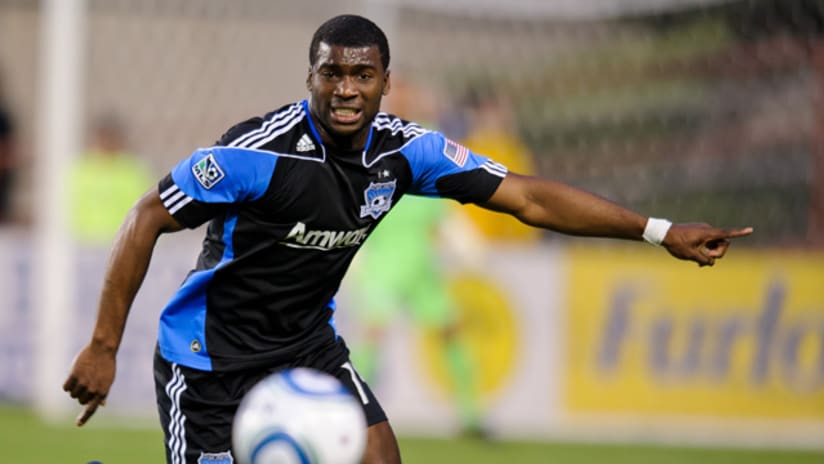After spending most of the last decade in San Francisco and San Jose, Brandon McDonald considers himself “a Bay boy at heart.”
Yet when the San Jose Earthquakes defender was traded Monday to D.C. United in exchange for allocation money, it didn’t take him long to prepare for a cross-country move.
“I packed my whole life in two bags right now,” McDonald told MLSsoccer.com from San Francisco International Airport, where he awaited his flight to DC.
While the move came as something of a surprise to outsiders, it was somewhat expected by McDonald, who had been told the teams were talking trade a couple of weeks ago — or shortly after the Quakes pounded home the point that DC needed a veteran center back by beating United 4-2 in RFK Stadium.
“It’s sad, but at the same time, I’m starting the next chapter of my career,” McDonald said.
The deal made perfect sense from the standpoint of the Quakes’ roster: Center back is San Jose’s position of greatest depth, with four tested starters for only two spots. It also helps the Quakes create some flexibility under the salary cap, giving them room to maneuver during the upcoming summer transfer window.
“It wasn’t that I wanted to go,” McDonald said. “It wasn’t that they wanted me to go. But for the business side of things and for me to get playing time, it made sense.”
McDonald, who signed with the Quakes in March 2009 after being waived by the Los Angeles Galaxy, had become San Jose’s odd man out in recent weeks after beginning the season in a central partnership with Jason Hernandez. McDonald played only 12 minutes in the Quakes’ last six MLS matches while being supplanted in the starting XI by Ike Opara and, after Opara’s left foot injury, Bobby Burling.
“Ike got healthy, Ike played well,” Quakes general manager John Doyle told MLSsoccer.com. “We’ve always known we can count on Bobby. Brad Ring playing well [at defensive midfielder, McDonald’s alternate spot], that covered another position. It became an opportunity to get some allocation money, and we took it.”
McDonald joins a side that could desperately use his strength and experience in the middle, although he doesn’t expect to jump immediately into coach Ben Olsen’s lineup.
“I don’t think I’ll just walk right in,” McDonald said. “I want to earn the respect of my teammates first.”
From the Quakes’ perspective, McDonald was a luxury they ultimately couldn’t afford to keep, on a number of fronts.
To start with, McDonald is in the final year of his contract and will be looking for a raise next season, something that was going to be tough for the cap-strapped Quakes. That assumes McDonald wants to return to MLS at all; at 25, if the former University of San Francisco star is ever going to play abroad — a goal he has openly talked about — this winter would be his last best chance to make the move.
“We talked to him about a long-term contract end of last year,” Doyle said. “He expressed to us he wanted to play out his deal and wasn’t going to re-sign in San Jose. I think he feels at the end of this season he wants to explore Europe and other opportunities. He thinks he’s at an age where it’s his chance. He’ll be completely free of MLS and can go out on the world market.”
In the meantime, the deal sets up the Quakes to engage in what has become a typical MO since their 2008 rebirth: calling in the midseason cavalry to provide a second-half boost.
German-born Turkish forward Sercan Güvenişik had a week-long trial with the Quakes earlier this month. Also, San Jose have had a revolving door at right midfield — Bobby Convey was placed back there in Saturday’s 0-0 tie against the Galaxy — and clearly could use a solid starter in that spot. The infusion of allocation cash helps make that possibility more realistic.
Geoff Lepper covers the Earthquakes for MLSsoccer.com. He can be reached at sanjosequakes@gmail.com. On Twitter: @sjquakes


